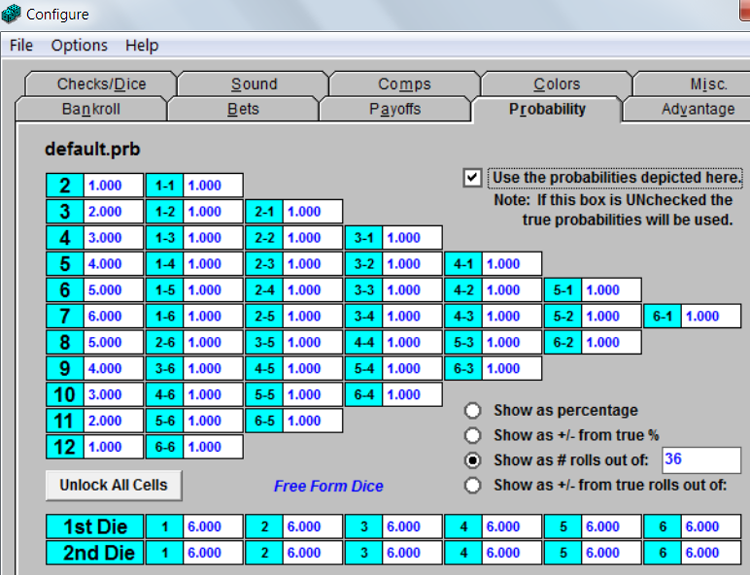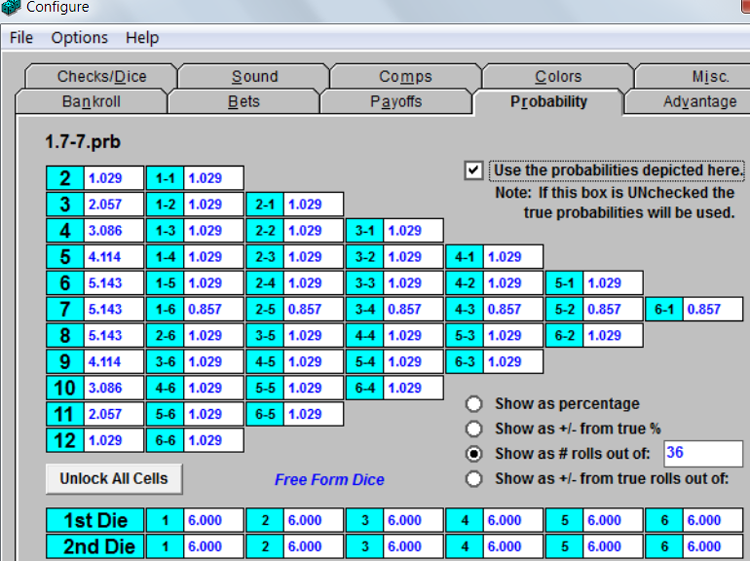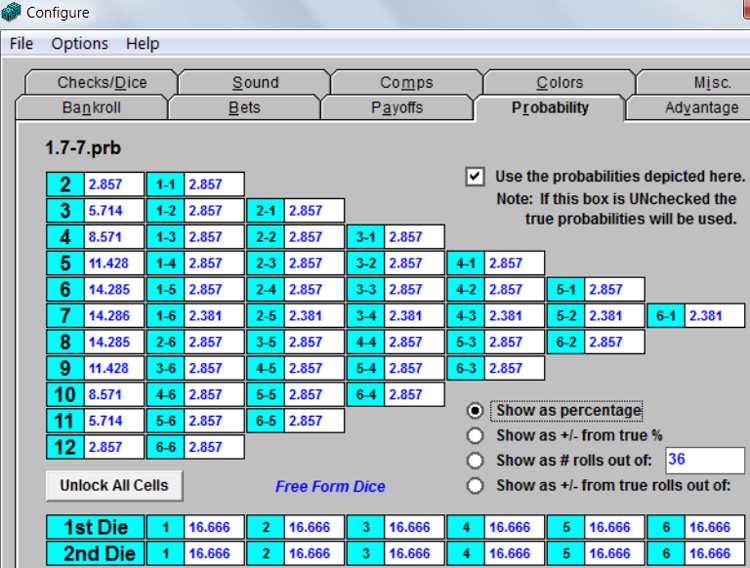The rest of my discussion on this topic here will be added to the thread over at Wizard of Vegas.
Wizard of Vegas - 5 count
Alan had asked the same question there about a year ago and Frank also replied there too.
I want a larger audience to see what I have come up with, from my math that actually matched SN Ethier's about the 5 count on my first attempt.
My husband, who is a math genius, already told me I did a great job on the math without doing much computer programming on it.
Plus, more that search the internet for information about the 5 count will find it there earlier than finding it here. Just a fact of computer life.
I expanded a table to include the 3,4,5,6 and 7 count
as well as a table showing the Alan 4 and run count (and 3 and 5 too)
here is a sample of the expected loss per shooter
using just the Place 6 and Place 8 for $6 each. yes, boring,
but it is exactly what Don Catlin used in his first simulation on the 5 count.
Code:
X-count expected loss per shooter
3 -0.277265999
4 -0.238852933
5 -0.206000126
6 -0.177704165
7 -0.153297351
The Alan 4 and run count has a lower expected loss than the 5 count does.
Alan-X expected loss per shooter
3 -0.160493827
4 -0.203389346
5 -0.240464487
Originally Posted by
FrankScoblete

I'm telling you Alan, my psychic powers tell me that you will lose the house edge per bet as those who wait for the 5-Count to bet. Watch and see.
Scobedini
No craps player keeps a record of all the specific number of bets with the amounts wagered to even attempt to arrive at the result to see with their own eyes how accurate that statement is.
Actually,
"you will lose the house edge per bet"
is not a 100% correct mathematical statement.
example
the house edge on the pass line bet that Alan makes is exactly -7/495
and one could make a trillion bets X a trillion bets on the pass line over their lifetime and not lose exactly -7/495 per bet made.
The correct concept is one approaches that value
and can get quite close to it as a percentage per bet and will only be on it exactly by shear coincidence after X bets made.
any assumption that one "will lose" the house edge times all the action made the more they play and bet
is part of the Gambler's fallacy and of the law of averages - that really is no law.
I hope Frank does not believe in that
The law of averages
Belief that a sample's average must equal its expected value.
That false belief says variance does not exist, ever.
still having fun!
Sally
Alan, you are famous to some in SoCal TV land.
I was at a party with lots of seniors and brought up your name.
the ladies there knew who you were.
sad part is most think you passed away years ago.
TV I guess can be so cruel




 Reply With Quote
Reply With Quote



